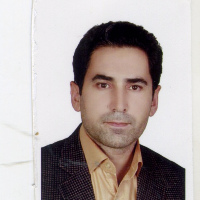Adaptable and renewable lifestyle: an exploration of socio-cultural contexts, patterns and identifying spaces of the Yazdi lifestyle in the
Author(s):
Article Type:
Research/Original Article (بدون رتبه معتبر)
Abstract:
The lifestyle in any society represents the social and cultural characteristics of that society. This lifestyle, along with cultural components, becomes a durable collective identity in a society. The aim of this research was to explore the socio-cultural contexts, patterns and identity spaces of the Yazidians’ lifestyle in the past. The method used in this research was the ethnographic method. The target community of this research was Yazd city and the target sample of the research was 15 people of Yazd historians and cultural experts who were selected by purposeful sampling. The results of the research show that the lifestyle of Yazdians in the past has been influenced by the climatic and desert conditions of Yazd, relative security, limited resources, the spirit of tolerance, the culture of religiosity and mourning, and the hardworking spirit of the people in Yazd. The main category in this research was found to be adaptable and renewable lifestyle, which implies the principle of adaptation and the principle of adaptation based on the will of Yazidians despite all the limitations imposed by environmental conditions. Moreover, the lifestyle of Yazidians in the past was found to have been influenced by clerical reference groups, local and market trustees, and parents, which has been formed in the spaces of religious, economic, and social identity
Keywords:
Language:
Persian
Published:
Culture of Yazd, Volume:3 Issue: 11, 2024
Pages:
85 to 114
https://magiran.com/p2681776
مقالات دیگری از این نویسنده (گان)
-
A Study of Formal and Content Changes in Shopping Behavior of People in Shopping Malls of Karaj
Ezzatollah Faridnia, Manouchehr Ali Nejad *
Journal of Social Sciences, -
Qualitative Study of the Platforms and Motivations of Kerman Women’s Participation in Empowerment Programs
Zahra Ghasemzadeh, Hossein Afrasiabi, Dariush Boostani
Journal of Social Work,



